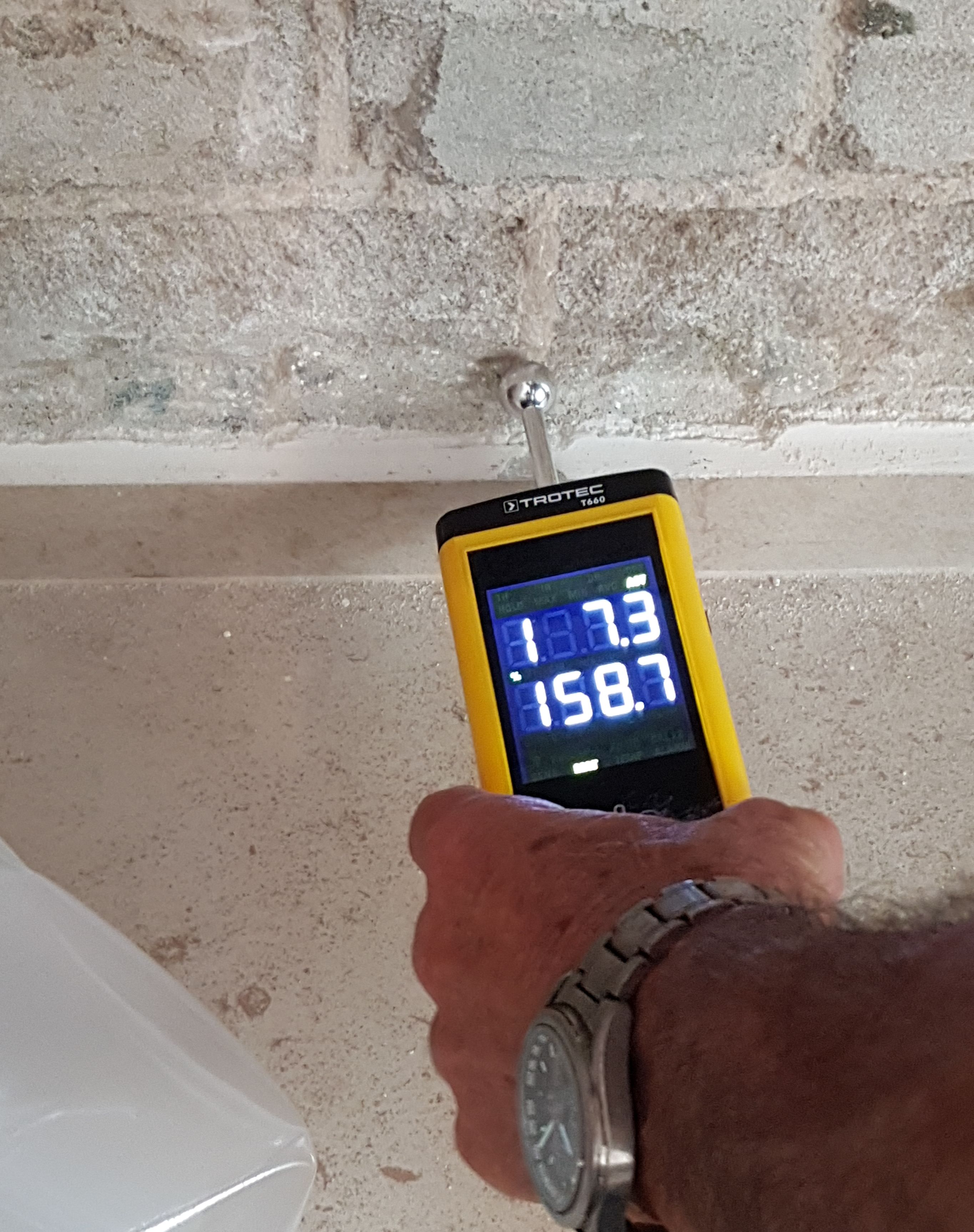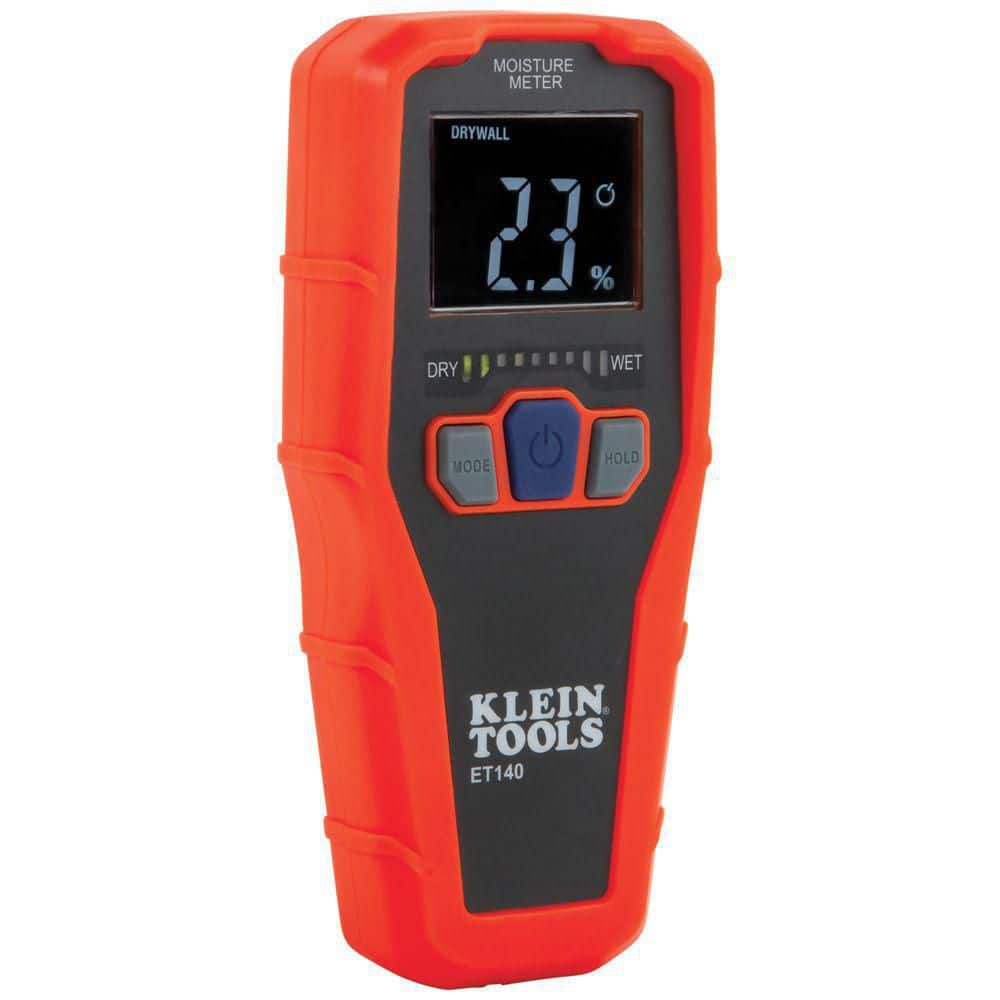The Ultimate Guide to Moisture Meters: A Comprehensive Introduction and Just How They Can Save You Money
In the realm of structure maintenance, building, and various industries, the value of precisely gauging moisture degrees can not be overstated. Wetness meters function as vital devices in detecting and keeping an eye on moisture web content in products, assisting in protecting against expensive damages and making certain the top quality of items. Understanding the subtleties of different sorts of moisture meters, their applications, and the prospective cost-saving benefits they provide can be a game-changer for experts and companies alike. Finding just how these gadgets can not just streamline processes however additionally add to monetary cost savings is a journey worth starting.
Kinds Of Moisture Meters
One usual type is the pin-type dampness meter, which gauges the electrical resistance in between 2 pins inserted right into a material. Pinless dampness meters, on the various other hand, use electromagnetic sensing unit plates to scan a larger location without triggering damages to the material's surface.
Furthermore, there are likewise specialized wetness meters made for specific products like grain, hay, or dirt. These meters offer exact moisture readings customized to the special properties of the material being examined. Infrared moisture meters determine the thermal properties of a product to identify its moisture material non-invasively, making them beneficial for applications where pin or pinless meters might not appropriate. Comprehending the various kinds of moisture meters available can assist industries choose the most appropriate device for their specific moisture measurement needs.

Advantages of Using Moisture Meters

Additionally, utilizing wetness meters can lead to raised energy effectiveness. In agricultural setups, wetness meters play a critical function in optimizing plant returns by allowing farmers to keep an eye on dirt wetness levels and make notified watering choices.
Just How to Choose the Right Moisture Meter
Choosing the ideal moisture meter includes considering key elements such as material compatibility, measurement range, and calibration precision. When selecting a wetness meter, it's vital to ensure that the meter is ideal for the details product you will be screening. Various materials have varying electric residential or commercial properties that can affect moisture readings, so selecting a meter designed for your product is vital for accurate outcomes. Furthermore, consider the measurement variety of the moisture meter. Guarantee that the meter can identify dampness degrees within the array needed for your applications. Calibration accuracy is another crucial aspect to bear in mind (Moisture Meter). Choose a moisture meter with dependable calibration to make sure consistent and accurate readings. Some meters may require routine calibration modifications, so recognizing the calibration procedure is very important. By carefully assessing these elements, you can pick a dampness meter that satisfies your requirements and offers exact wetness measurements for your jobs.
Correct Techniques for Moisture Meter Use
To make sure precise dampness readings and make best use of the performance of check a wetness meter, using proper methods is important. When making use of a pin-type wetness meter, insert the pins or probes into the material being evaluated until they make complete contact. By complying with these correct techniques, customers can rely on their dampness meter to offer credible moisture degrees, aiding in preventing pricey damages or making sure top quality in numerous applications.

Cost Cost Savings Via Moisture Meter Applications
How can the strategic application of wetness meters bring about significant go to website expense savings throughout various industries? Moisture meters play an essential role in expense financial savings by preventing potential damages and making certain quality assurance in different markets. In the agriculture sector, moisture meters help in determining the ideal time for collecting plants, preventing excess or over-drying moisture that can influence the end product's top quality. This exact tracking helps farmers avoid unnecessary losses and optimize their return.

Furthermore, in the food processing sector, dampness meters are crucial for keeping track of product top quality and guaranteeing compliance with security laws. By properly gauging wetness content in foodstuff, makers can avoid wasting, maintain freshness, and reduce waste, resulting in substantial cost savings. Generally, the critical application of wetness meters is a beneficial financial investment that can result in significant expense reductions and improved performance throughout numerous sectors.
Verdict
To conclude, moisture meters are useful devices for spotting and measuring wetness levels in numerous products. By using the More about the author right dampness meter and complying with appropriate techniques, customers can properly prevent expensive problems brought on by excess wetness. Spending in a top quality moisture meter can lead to significant price savings in the future by recognizing potential issues beforehand and enabling timely remediation. Ultimately, wetness meters are important instruments for keeping the honesty and longevity of structures and materials.
Moisture meters offer as important devices in finding and checking moisture content in materials, aiding in avoiding costly problems and ensuring the high quality of products. Infrared wetness meters gauge the thermal residential properties of a material to identify its wetness web content non-invasively, making them beneficial for applications where pin or pinless meters might not be ideal.Moisture meters use indispensable advantages in accurately assessing and monitoring moisture degrees in diverse products and environments. In farming settings, dampness meters play a critical duty in maximizing plant returns by making it possible for farmers to keep an eye on soil dampness degrees and make informed irrigation choices.In conclusion, dampness meters are useful tools for identifying and measuring dampness degrees in numerous materials.
Comments on “Why Every Property Owner Requirements a Moisture Meter: Secret Benefits and Attributes”